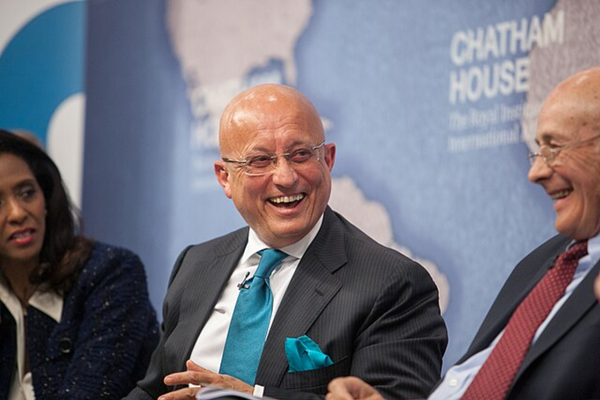It is a cliche that Labour is the party of work – “the clue is in the name” – and yet the first time that proposition has been tested in government resulted in a humiliating retreat. Keir Starmer failed to make the case for welfare reform, which meant that it looked as if he and Rachel Reeves, his iron chancellor, just wanted to save money.
After it was presented to Labour backbenchers as a choice between austerity and defending the rights of people with disabilities, there was only going to be one outcome – and it is a measure of the prime minister’s naivety that he didn’t see this until the last moment.
It is significant that it was Angela Rayner, who lives and breathes politics, who led the effort behind the scenes to save the government from being defeated in the Commons. It was she who forced the prime minister to bow to the reality of parliamentary arithmetic.
As reputations shake out in the aftermath of the government’s double climb-down, only the deputy prime minister has gained in stature. Starmer’s standing in the party and the country has been damaged, so much so that some Labour MPs are talking about when Rayner might take over from him.
Reeves’s share price has also fallen – so much so that, when she appeared upset about what her spokesperson said was a “personal matter” at Prime Minister’s Questions today, speculation that she had resigned or was about to resign rocked the bond markets.
The reputation of Liz Kendall, the work and pensions secretary, has also suffered. She managed to push more Labour MPs into the rebel camp with her defence of her bill to restrict personal independent payments (PIP) on Monday.
There is talk of resets and reshuffles, but unless they deal with the cause of the government’s difficulties, these will be to no avail. Some Labour MPs want Reeves to be moved out of the Treasury. Indeed, she must take some of the blame for the government’s embarrassment, but moving her would be an act of weakness on Starmer’s part, and, besides, who could replace her that would make a better job of selling the reform message? John Healey? Wes Streeting? Rayner herself?
The real reason many dissident Labour MPs want Reeves moved, however, is that they simply want to be liberated from her fiscal rules, which is like saying that they want everything to be free.
No, the fundamental problem is that Starmer and Reeves started from the wrong place. They looked at the rising bill for disability benefits and thought it should be prevented from rising so fast.
But instead of analysing why the system run by the Department for Work and Pensions is putting so many people on PIP, they simply decreed that less should be spent on it. Kendall and Stephen Timms, the welfare minister, both of whom know a lot about the benefits system, did not have the time to work out a reform plan, and so offered crude changes to the rules to restrict eligibility instead.
It might have been possible to work out that the shift from in-person interviews to telephone or video calls might lead to more awards, for example, and that part of the solution would be to go back to assessors seeing people face to face. Instead, ministers were left trying to justify taking money away from existing recipients as well as from people who might expect to receive benefits in future.
That meant the government’s case was weak, and it had the disastrous effect of making Corbynite MPs sound reasonable. After all Starmer’s success in sidelining the impossibilist wing of the party before the election, he now allowed Nadia Whittome, Richard Burgon and Diane Abbott to find their voices and do what they do best – bashing the leadership.
The real problem was the number of mainstream loyalist Labour MPs who could not stand for taking benefits away from people with disabilities, but their rebellion gave free rein to the irreconcilables and added to the impression of a party at war with itself.
Starmer, who admitted that he had been “distracted” by important business abroad, should have realised that it was a priority to get the argument right. He should have insisted on going beyond the cliche about Labour being the party of working people and looked at why the disability benefits bill is rising, before devising a plan that really would get people off benefits and into work. As long as it didn’t involve taking benefits away from existing claimants (apart from fraudulent ones), mainstream loyalist Labour MPs would have supported it. And the Corbynite wing would have been marginalised.
Instead, Starmer has blighted the prospects of any reform. There was so little trust between Labour MPs and the government last night that even after Timms announced that the entire PIP section of the bill was being withdrawn, 49 Labour MPs still voted against it.
Even good, sensible and workable proposals are going to be difficult to get through parliament now.
On the other hand, Tony Blair and Gordon Brown recovered from unhappy early attempts to cut welfare spending in the first few years of the New Labour government, with Brown producing an imaginative plan for tax credits that improved incentives to work. Reeves must now come up with something similar.
Has Kemi Badenoch finally shown the killer instinct to save her as Tory leader?
It’s hard to see how Rachel Reeves can survive
Watching Rachel Reeves crying in the Commons was quietly devastating
Starmer has been given two black eyes by his party – here’s how he could fight back
The BBC claims impartiality over Gaza but there’s a conflict of interest at its heart
So the Bank of England wants ideas for new banknotes: let’s start with our war heroes







